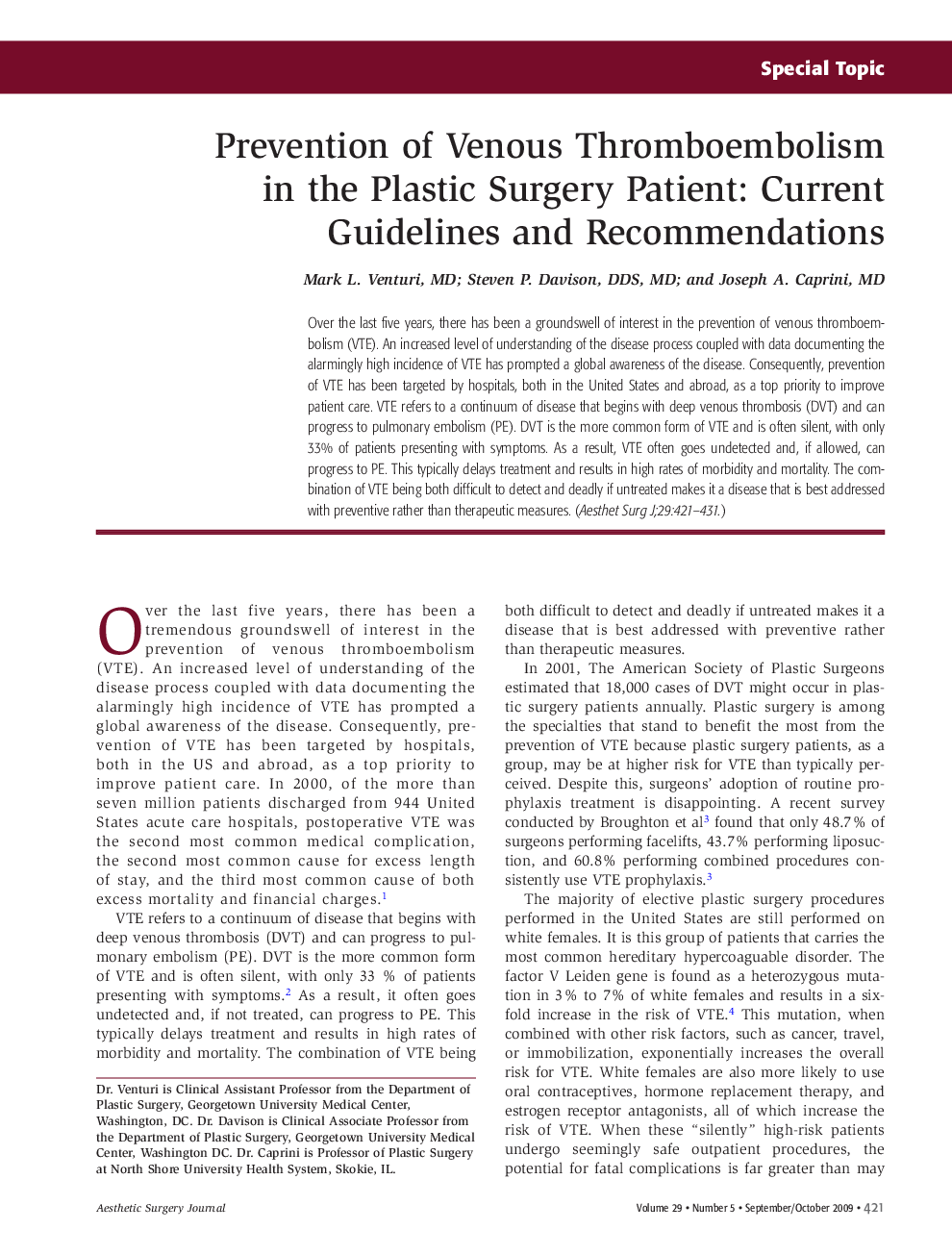| Article ID | Journal | Published Year | Pages | File Type |
|---|---|---|---|---|
| 4277626 | Aesthetic Surgery Journal | 2009 | 8 Pages |
Abstract
Over the last five years, there has been a groundswell of interest in the prevention of venous thromboembolism (VTE). An increased level of understanding of the disease process coupled with data documenting the alarmingly high incidence of VTE has prompted a global awareness of the disease. Consequently, prevention of VTE has been targeted by hospitals, both in the United States and abroad, as a top priority to improve patient care. VTE refers to a continuum of disease that begins with deep venous thrombosis (DVT) and can progress to pulmonary embolism (PE). DVT is the more common form of VTE and is often silent, with only 33% of patients presenting with symptoms. As a result, VTE often goes undetected and, if allowed, can progress to PE. This typically delays treatment and results in high rates of morbidity and mortality. The combination of VTE being both difficult to detect and deadly if untreated makes it a disease that is best addressed with preventive rather than therapeutic measures.
Related Topics
Health Sciences
Medicine and Dentistry
Surgery
Authors
Mark L. MD, Steven P. DDS, MD, Joseph A. MD,
